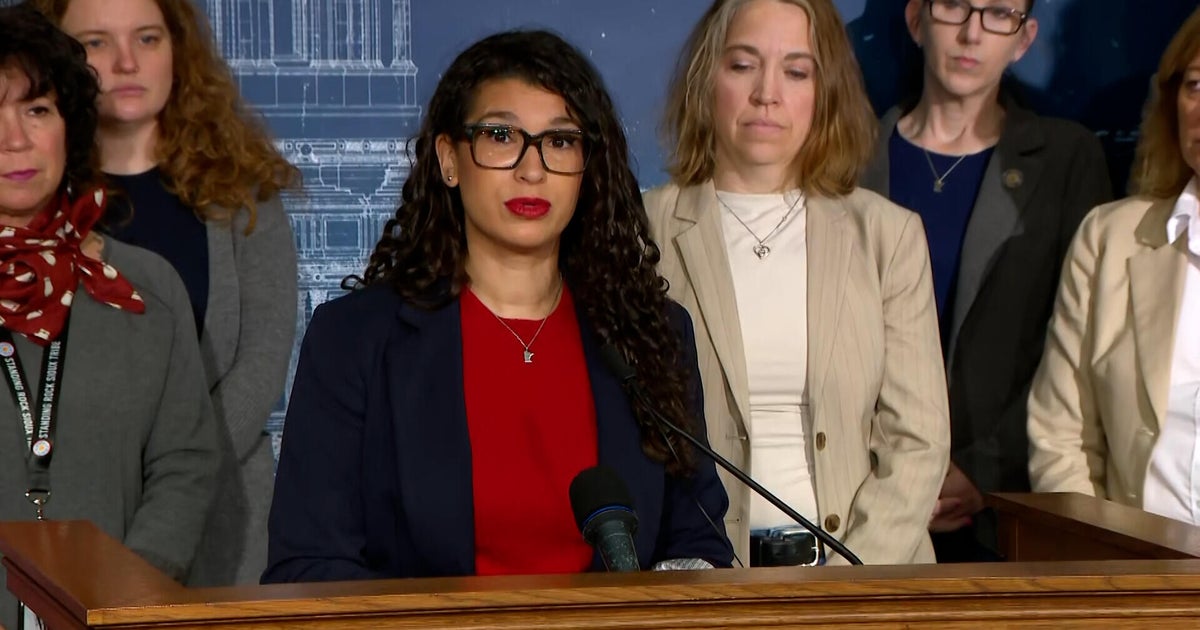U.S. Manufacturers, EPA Administrator Target Environmental Regulations
SAN FRANCISCO (CBS SF) -- The policies of the U.S. Environmental Protection Agency have emerged as the main target of American manufacturers, after the Trump Administration pressed industries on which federal regulations they found most burdensome.
Four days after taking office, President Trump signed a memorandum instructing the Commerce Department to find ways to streamline or eliminate burdensome regulations in order to boost domestic manufacturing. Part of the memorandum directed the Secretary of Commerce to solicit comments from stakeholders and the public about regulatory burdens.
The EPA was the primary target among the 171 comments.
The comments solicited from industry come just as EPA administrator Scott Pruitt announced a new agenda for the agency, which includes the launch of the EPA Regulatory Reform Task Force, which is tasked with conducting extensive reviews of its own "misaligned regulatory actions."
Dozens of major American companies -- ranging from Koch Industries to United States Steel Corporation to AT&T -- submitted their federal regulation grievances to the U.S. Department of Commerce.
American trade associations -- such as the American Petroleum Institute and the American Chemistry Council -- also chimed in, largely naming the Environmental Protection Agency and the Army Corp of Engineers' policies as major obstacles to building and expanding their domestic businesses.
The businesses and trade associations that listed the regulations having an adverse impact on their bottom lines were located across the country, including some operating in California, where Democratic lawmakers have largely challenged the Republican president's policy moves.
The California Environmental Protection Agency told CBS San Francisco Friday that "on issues where the Trump administration has taken specific action, the Governor has clearly signaled our intention to fight efforts in Washington to roll back federal programs that protect public health and the environment and fight climate change."
Valero Energy Corporation, which runs the Benicia petroleum and asphalt refinery, commented that federal, state or local laws overlap in the permitting process and require information needed to satisfy secondary agendas including "addressing perceived environmental justice concerns."
Valero, a member of the American Fuels and Petrochemicals Manufacturers Association, maintains its manufacturing operations are all "significantly impacted by the inefficiencies of the current permitting process, the burdens of the current regulatory regime, and the competitive disadvantage this situation places on American manufacturing."
Valero also commented on potential challenges poised by the California Bay Area Air Quality Management District -- the agency best known for issuing Spare the Air Days -- and which is now drafting regulations that could cap emissions at the five Bay Area refineries.
The air district is currently seeking public comment on the proposed regulation before a vote on it next month.
The Independent Petroleum Association of America, which submitted comments on behalf of the California Independent Petroleum Association and other state oil and gas associations, claimed the Bureau of Land Management has "slowed or cancelled lease sales, capitulating to Keep It in the Ground radicals."
Among the 171 comments submitted to the government, one comment stood out.
A comment submitted by New York University Law School's Institute for Public Integrity stood out not only because it didn't represent industry, but because it attempted to warn the Trump administration, stating that it "is an irrational and inefficient approach" to prioritize retrospective review based only on the volume of opposition from industry.
The Institute for Public Integrity warned the U.S. Department of Commerce that, "Such an approach is inappropriate, as it completely ignores the magnitude of the social benefits generated by such regulations and permitting requirements."
Among the other comments submitted, more than 100 comments mentioned EPA regulations that they believe have hindered their businesses.
Some of the top criticisms of the EPA that flooded into the U.S. Department of Commerce were that the agency failed to adequately address the cost impacts of their policies -- such as the Clean Power Plan -- on the coal industry. Significant criticism was also raised concerning the EPA's proposed ban on the chemical compound Trichloroethylene, a common industrial solvent.
U.S. Steel Corporation wrote, "When developing regulations, U.S. EPA must consider the cumulative impact on the industries or even individual sources. All too often, U.S. EPA does not adequately address cost impacts, as has been shown in the effects of the coal industry..."
While the mission of EPA is "to protect human health and the environment," the new EPA Administrator Scott Pruitt, launched a new agenda last week.
From a Pennsylvania coal mine, Pruitt launched the "Back-To-Basics" agenda, which aims to refocus the EPA "on its intended mission, returning power to the states, and creating an environment where jobs can grow."
Pruitt told the coal miners that the "regulatory assault is over."
By Hannah Albarazi - Follow her on Twitter: @hannahalbarazi.







